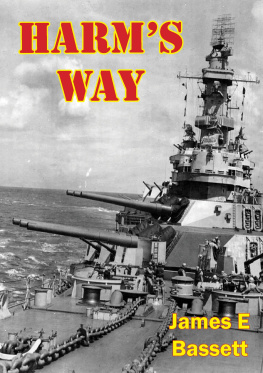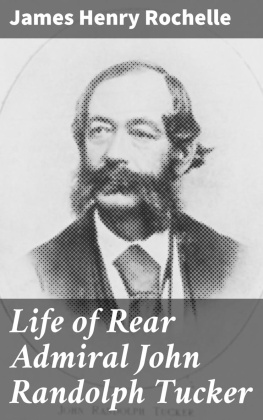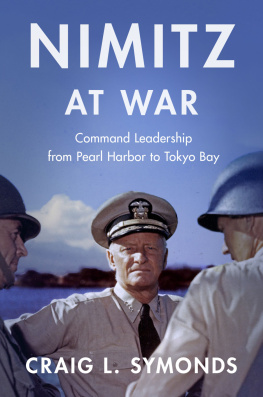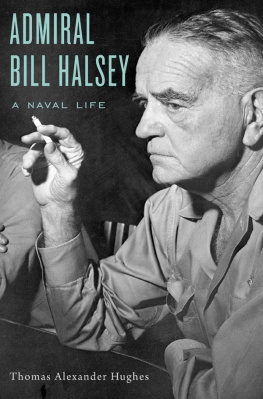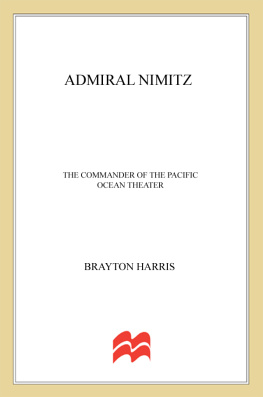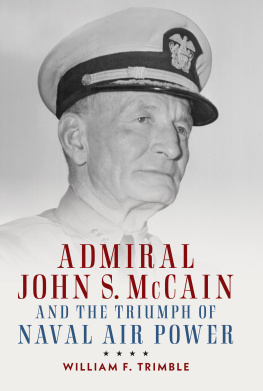

This edition is published by PICKLE PARTNERS PUBLISHINGwww.picklepartnerspublishing.com
To join our mailing list for new titles or for issues with our books picklepublishing@gmail.com
Or on Facebook
Text originally published in 1962 under the same title.
Pickle Partners Publishing 2015, all rights reserved. No part of this publication may be reproduced, stored in a retrieval system or transmitted by any means, electrical, mechanical or otherwise without the written permission of the copyright holder.
Publishers Note
Although in most cases we have retained the Authors original spelling and grammar to authentically reproduce the work of the Author and the original intent of such material, some additional notes and clarifications have been added for the modern readers benefit.
We have also made every effort to include all maps and illustrations of the original edition the limitations of formatting do not allow of including larger maps, we will upload as many of these maps as possible.
Harms Way
By
James E Bassett
TABLE OF CONTENTS
Contents
DEDICATION
For my wife, Willie, who lived through all these things, and who loved Admiral Bill Halsey as much as I did.
PRECEDE
IN THIS STORY of naval command during the year that began with Pearl Harbor, on December 7, 1941, certain things occur which never really happened at all. Other things which did take place in that early phase of the Pacific War have been purposely omitted, for the narratives sake.
Thus, the historical events which form part of this novels framework have been telescoped to create a microcosm, a bit of everything in miniature, rather than a one-sided view of wars more sweeping macrocosm.
Except for the historical persons whom I have not endeavored to disguise, none of the characters in this fiction are based on any actual person, living or dead. Only the heroes may have subconscious counterparts in the authors mind. Such villains as might appear have been cut from whole khaki cloth.
For there are no villains in war.
Only war itself is the villain...
I wish to have no Connection with any Ship that does not sail fast, for I intend to go in harms way ... JOHN PAUL JONES, USN
FOUR STRIPES
1. No Longer the Harem Eunuchs!
FRAMED by the open weather door of his cabin, where he stood peering through the obscure dawn toward Oahus invisible shoreline, Captain Rockwell Torrey, USN, was not unlike the ship he commanded: tall, spare, angular, and plainly fabricated out of some hard gray substance that armored both man and cruiser against the weapons of a hostile world.
Although the image he evoked was unmistakable, he would have derided the suggestion that he also resembled an absolute monarch at this precise instant, surveying his domain from a castle parapet, and contemplating what lay ahead for his thirteen hundred subjects, his steel realm, and himself, during the long day that had just begun.
Captain Torrey, feeling neither regal nor infallible, pushed back the frayed sleeve of his seersucker bathrobe and glanced at the waterproof watch on his bony wrist, as if to verify mechanically what he could not confirm visually in that pervasive semidarkness. It showed 0630, four minutes past the official sunrise decreed by the almanac. But full daylight would not arrive for another half-hour, when the sun would burst blindingly over Tantalus and Olympus, the cane-fields would change from somber black into bright yellow-green, and the twelve-hour gunnery exercise would get underway.
Consciously, with a sense of physical relief, he inhaled deeply, filling his lungs with moist salt air to exorcise the staleness caused by sleeping all night behind the closed ports of his stateroom. The cold metal plating felt good against his bare feet.
For a long moment he remained at the exit to the small veranda deck, where he occasionally sunbathed on peaceful afternoons. It lay just below the glass-windowed navigating bridge, and one level above the cruisers sweeping main deck. His line of vision toward Oahu, still hidden in the eastern mists, was impeded by a pair of five-inch/38s. Canvas-hooded against the dampness of the subtropical dawn and the corrosive spray that sifted back from the bow, these lean rifles provided secondary defense against surface enemies and primary protection against aerial attack.
Despite her advanced age, however, the cruiser had never fired her guns in anger, and nagging doubts about what might happen if she were suddenly confronted by an authentic foe were constantly on Torreys mind.
Scowling, he considered this possibility for the thousandth time in the past week before he rejected it as too improbable, or at least too premature, for valid concern just then. Meanwhile, in the endless pattern of other days, he must try again to wheedle his ship into that desirable condition which the Navy called maximum readiness. This entailed launching the cruisers clumsy pontooned aircraft, recovering them, shepherding the mine-sweep rehearsals of the two ancient converted four-stack destroyers, and shooting at target sleeves towed by patrol planes from Pearl Harbor, a dozen miles away.
Captain Torrey turned slowly as a knock sounded against the inner door that led to the superstructure passageway.
When he called, Yes? his voice was as thoroughly neutral, severely accentless, and utterly controlled as only twenty-seven years in the Navy could make it.
Five bells, sir, the Marine messenger announced softly.
Thanks, Torrey said. I know. Im awake.
Commander Eddington reports that our first launching will take place at 0700 sharp.
Very well. Tell the exec Im coming topside right away. And, Leary, have the galley send breakfast up to my sea cabin. Bacon and eggs. Toast. Black coffee. Some juice. Thats all.
Aye, aye, sir.
He could almost feel the Marines stiff salute through the closed door. Heavy-shod feet sounded like a one-horse cavalry charge on the steel plates outside, then faded, as the messenger clop-clopped down the ladder to alert the cooks that the captain was wide awake, hungry, and in one friggin hell of a hurry to get cracking.
When he swung back toward the open portal, Torreys grim expression eased imperceptibly, for he noted that the irrepressible tradewind was blowing lightly, north-to-northeast. This, he reflected, should simplify the always vexing problem of catapulting the scout planes. His gray-blue eyes narrowed again as he stared aft, past the 20-millimeter twin mounts uptilted in their steel tubs, past the tall smokestacks and the catapult tracks, past the squat tower that contained the secondary controls (where his executive officer would assume command if an enemy shell obliterated the bridge), and finally past the menacing three-fingered bulk of Number 3 turret with its eight-inch main battery.
Torrey cast a last lingering glance at the ocean, the sky, and his ship before he commenced his Spartan morning toilet.
In this uncertain moment just before the true dawn, which was briefly delayed by a wall of translucent clouds banked wraith-gray against the Koolau Range to the east, the cruiser seemed quite alone and friendless on the green-slag sea. Neither graceful nor swift, she plowed stolidly along her prearranged course like an old woman dark-clad in widows weeds crossing a deserted street. Her progress was all the more deliberate, and unhurried, because only a fraction of the 107,000 horsepower generated by her turbines had been summoned into play. Where her sharp prow engaged the easy swells barely a trace of white spume showed.
Next page
